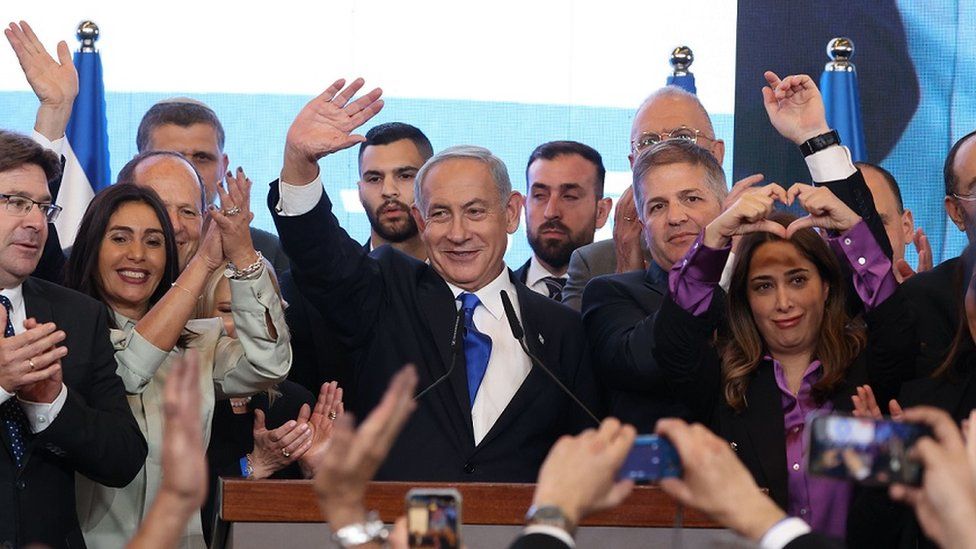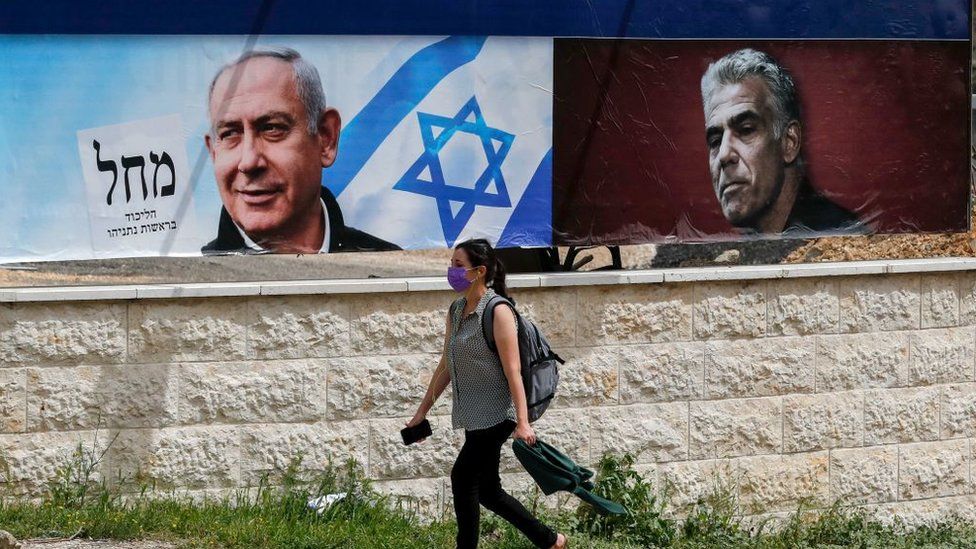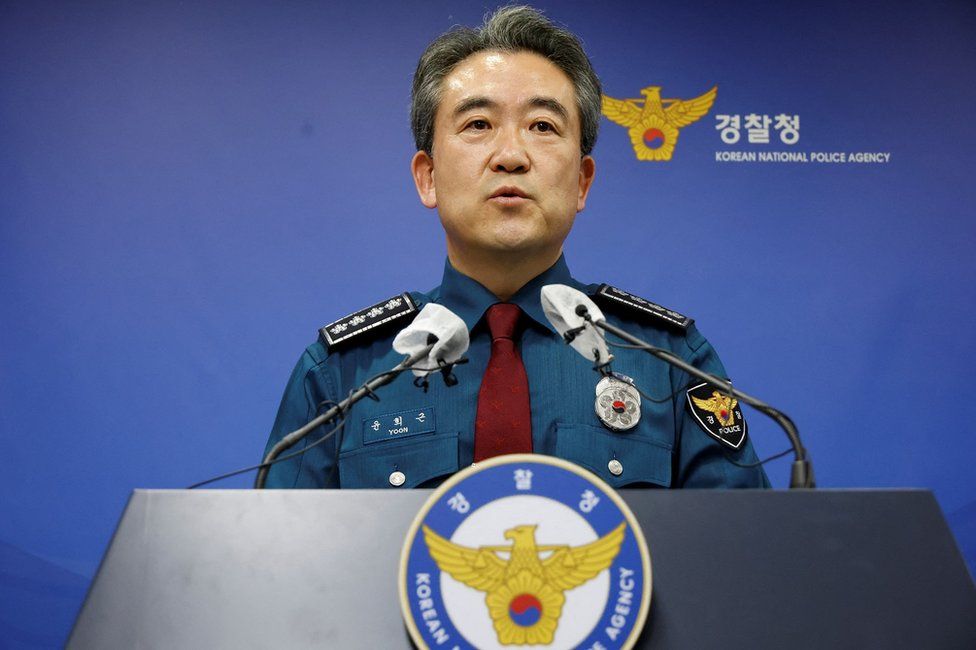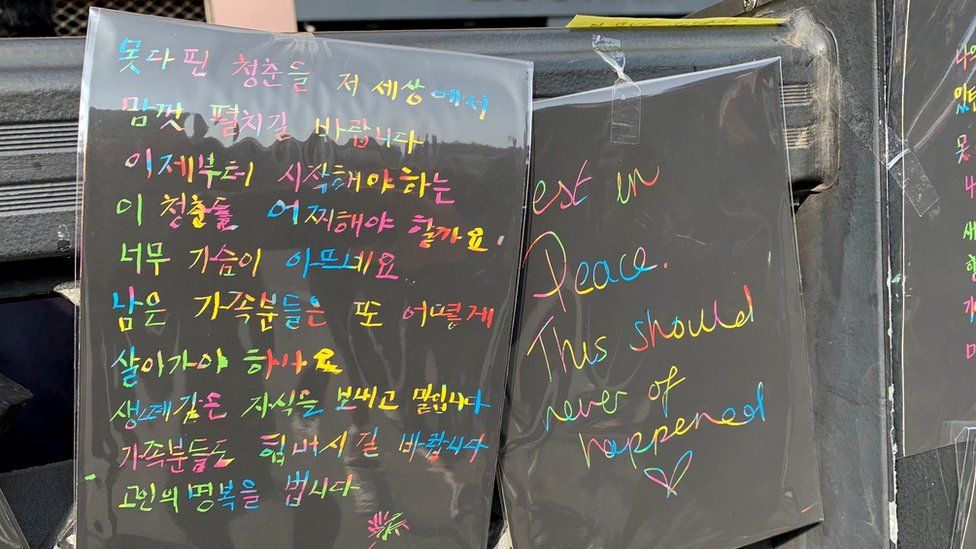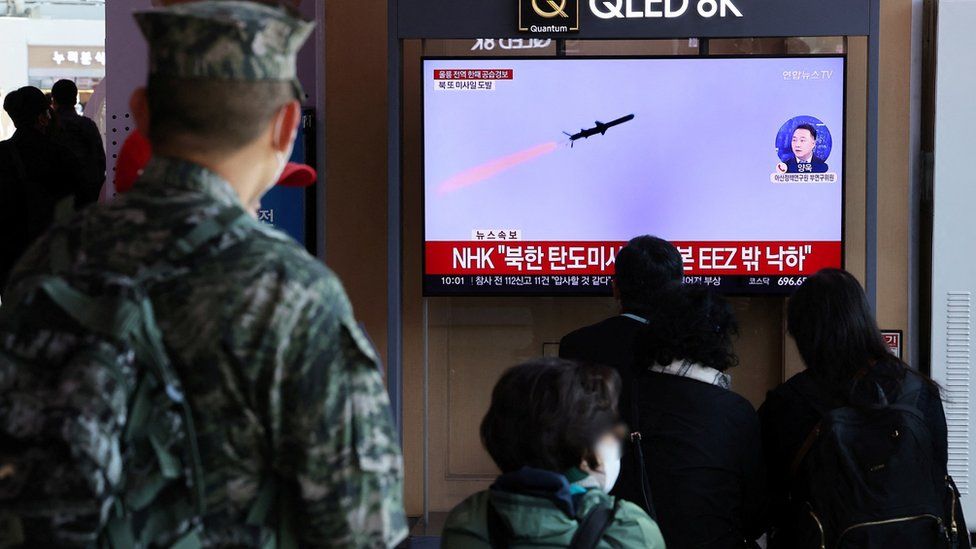
North and South Korea have both fired missiles landing in waters off each other's coasts for the first time.
Seoul retaliated on Wednesday three hours after Pyongyang launched a missile that landed less than 60km (37mi) off the South's city of Sokcho.
The South's military said this was an "unacceptable" breach of its territory.
It fired three air-to-ground missiles in response, which officials said landed a similar distance past the Northern Limit Line (NLL).
The demarcation line marks the rough midway-point in the sea between North and South Korea, but the North has never accepted the boundary.
On Tuesday North Korea warned that South Korea and the US would pay "the most horrible price in history" if they continued joint military drills, seen as a veiled threat to use nuclear weapons.
The North is expected to resume nuclear weapons testing soon after a five-year break, with US and South Korean intelligence saying Pyongyang has completed all the necessary preparations.
The tit-for-tat missile launches come during a period of national mourning in South Korea, following the crowd crush in Seoul at the weekend which killed more than 150 people.
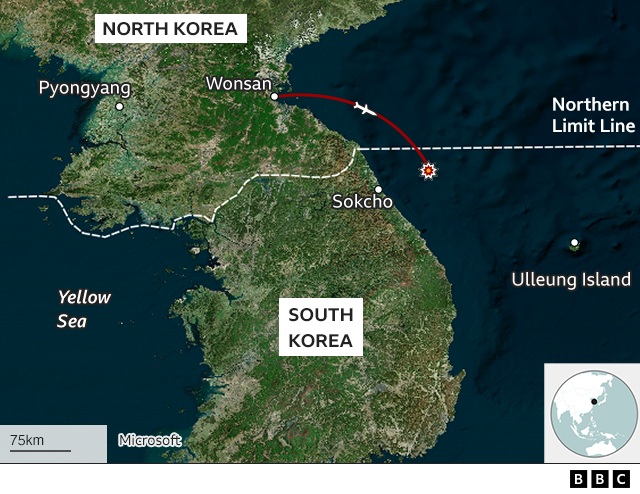
North Korea fired at least 10 missiles in both east and west directions on Wednesday, South Korean officials say.
At least one of the North Korean missiles - launched before 09:00 (00:00 GMT) on Wednesday - landed about 26km south of the border, 57km east of Sokcho and 167km north-west of Ulleung island.
It triggered air-raid sirens on Ulleung, where residents were told to evacuate to underground shelters.
The launch was picked up immediately by South Korean and Japanese authorities who swiftly condemned the escalation from Pyongyang.
South Korea's President Yoon Suk-yeol labelled it an "effective territorial invasion", although the missile landed outside South Korean territorial waters, and vowed a "swift and firm response".
Under international law, countries can only establish territorial claim to 12 nautical miles of sea bordering their land. Mr Yoon has made it his policy to take a tough line on North Korea.
Around three hours later, the South fired three precision air-to-ground missiles from warplanes into waters off North Korea's east coast.
The firings are a marked escalation in hostilities across the peninsula this year, which has already witnessed over 50 missile launches from North Korea - including one ballistic missile that passed over Japan.
On Monday a US nuclear-powered submarine arrived off the coast of South Korea as part of the joint US-South Korean drills, which began in August.
https://news.google.com/__i/rss/rd/articles/CBMiLmh0dHBzOi8vd3d3LmJiYy5jby51ay9uZXdzL3dvcmxkLWFzaWEtNjM0ODExODPSATJodHRwczovL3d3dy5iYmMuY28udWsvbmV3cy93b3JsZC1hc2lhLTYzNDgxMTgzLmFtcA?oc=5
2022-11-02 06:19:07Z
1622275830
